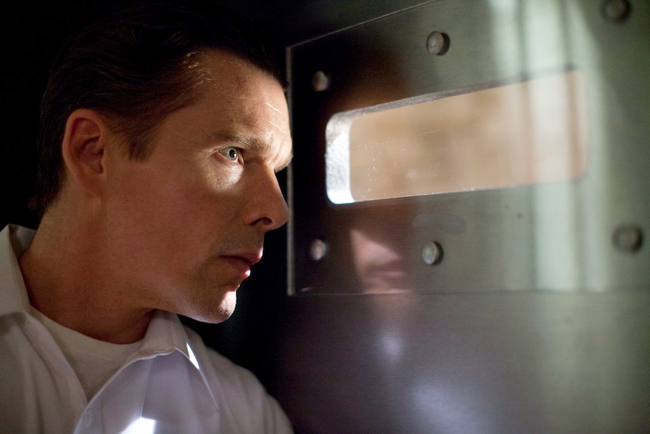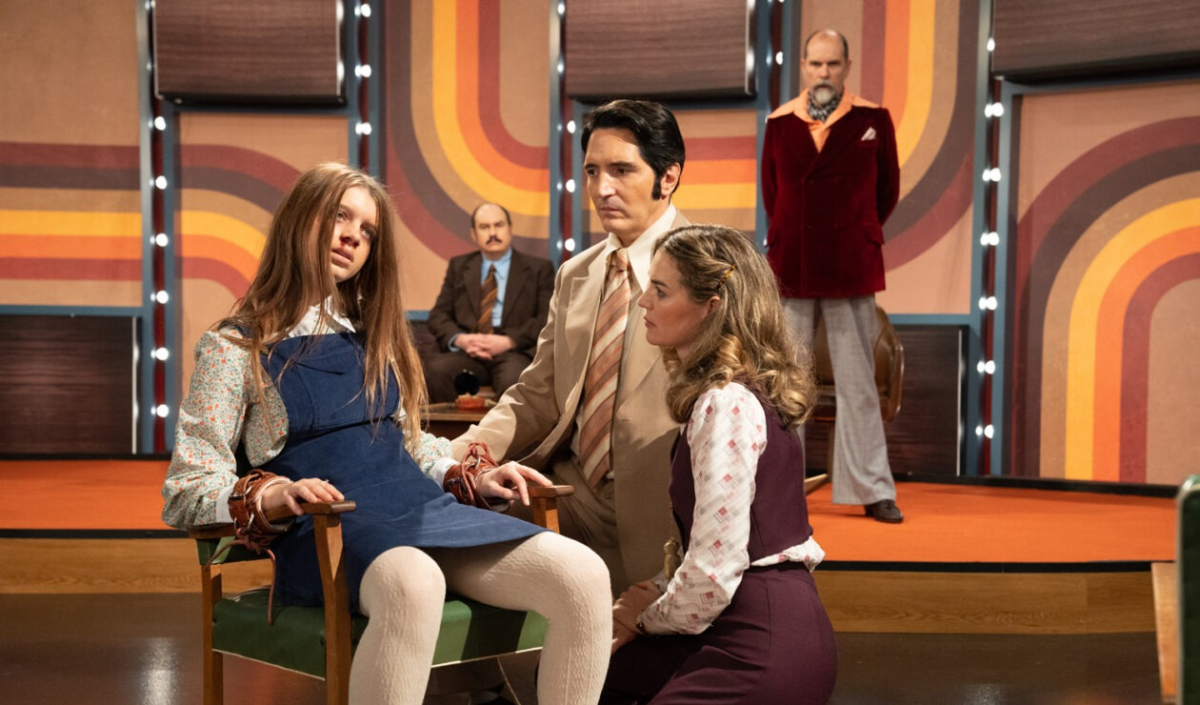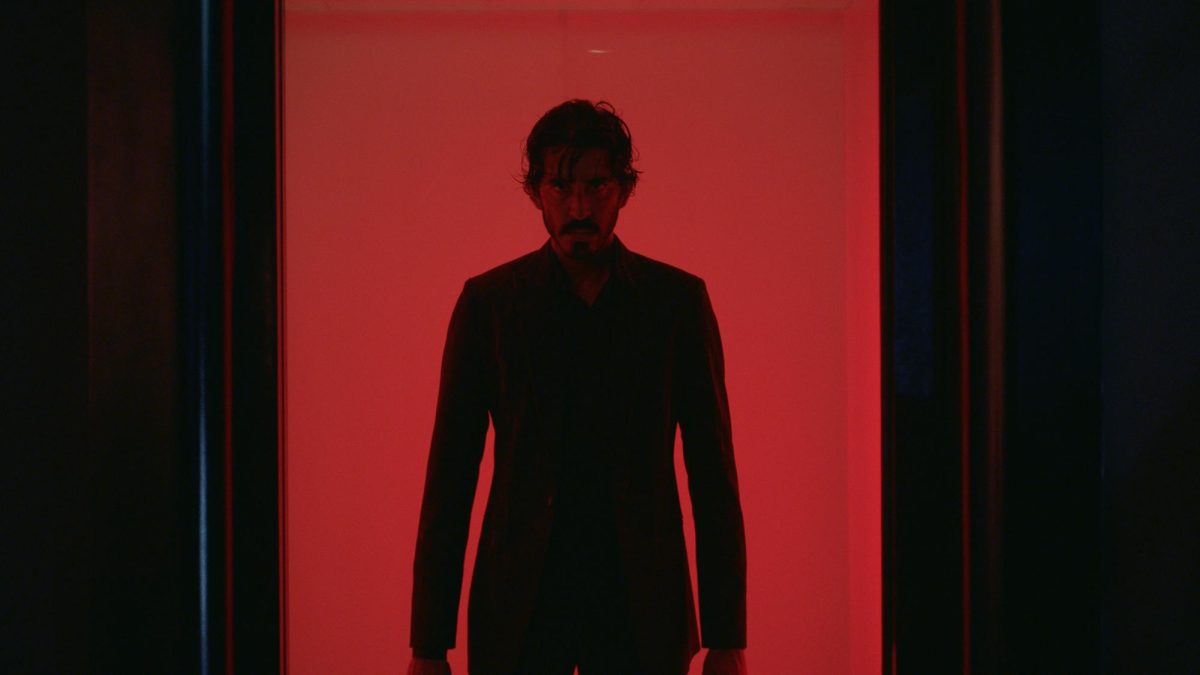Many great horror films deftly sneak a message about the human condition in amongst the blood and guts, like intellectual vegetables to compliment the red meat of jump scares and arterial spray. Unfortunately, “The Purge” is a philosophical argument in search of a film, and its thinly-plotted exploration of humanity’s dark nature comes across with the subtlety and nuance of a jackhammer.
“The Purge” takes place during an annual 12-hour legalization of every crime under the sun, meant to allow society to work out some festering frustrations via copious bloodshed. James Sandin (Ethan Hawke) and his family elect to abstain, sealing themselves in the steel-reinforced home that Sandin’s job as a security salesman has paid for. Once the cinematically-mandated precocious teen in the family (Max Burkholder) lets a homeless man (Edwin Hodge) into the fortress, the Sandins are forced to face the wrath of a group of enthusiastic upper-class Purge participants.
It’s common for characters in horror films to make illogical decisions in service of carnage, but the characters in “The Purge” are defined almost entirely by their crushing stupidity. Hawke is a consistently interesting actor, but his nondescript performance here is an apt reflection of a hollow script. Hodge plays a walking deus ex machina, his character existing merely to keep the plot moving, with zero internal logic or consistency and maybe a dozen lines of dialogue. Slightly more offputting is the portrayal of the Sandins' teenage daughter, played by Adelaide Kane. The only trait Kane’s character is given is that she’s too young to be dating, which makes the camera’s constant ogling of her schoolgirl outfit icky, to say the least.
The only character with a distinct personality is the leader of the group trying to break into the Sandin home, played to perfection by Rhys Wakefield. Wakefield is introduced with a chilling monologue, delivered with a menacingly crusty upper-lip and lyrical candor, and it’s the film’s best scene, putting the Purge into perspective while establishing a valid new threat. Wakefield almost steals the movie out from the rest of the cast, before his character inevitably descends into the same rampant stupidity that mars the rest of the cast.
At a brutally efficient 85 minutes, “The Purge” is a film with very little excess, but it also lacks some of the basic fundamentals of a good story. The character arcs are practically non-existent, just out of director James DeMonaco’s reach, but the film still delves into interesting territory. Though “The Purge” spends far too much time engaging in philosophical debates instead of telling a compelling story, the concept of a legally-mandated indulgence of humanity’s worst impulses is a fascinating one. DeMonaco also stages some harrowing action sequences, and as a horror film, “The Purge” works in a streamlined, lowest common denominator sort of way.
Above all, “The Purge” feels rushed and underdeveloped. From the ruthless economy of its storytelling and plot-driven mistakes of its characters to the transparently ideological clumsiness of its script, the film simply could have used a few more drafts on its script and a sharper sense of the story it wanted to tell. As it stands, “The Purge” is utterly disposable summer fare, inoffensive in its daftness but utterly unsatisfying regardless.





















